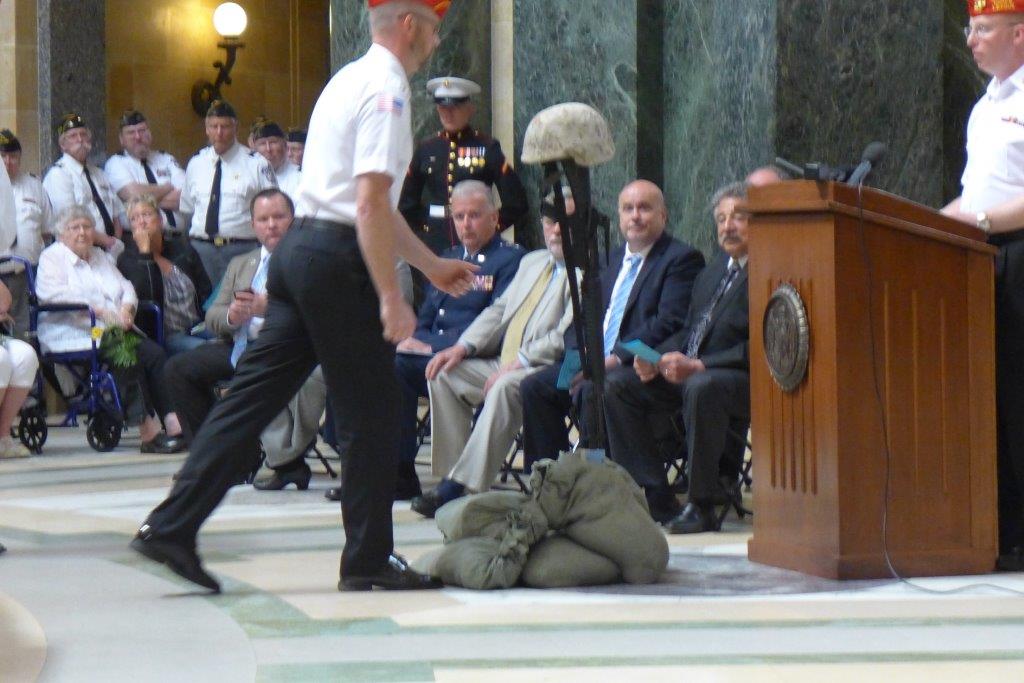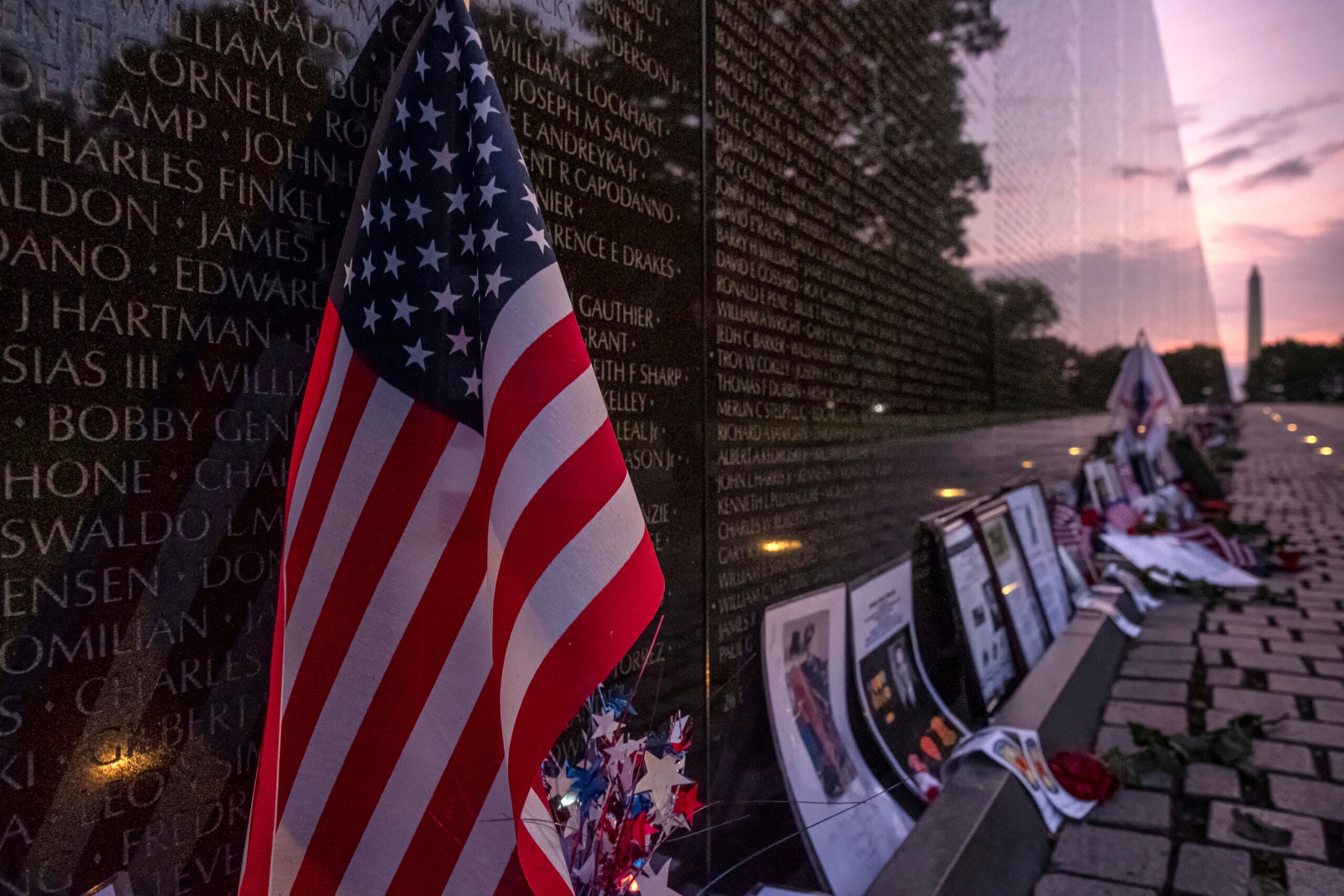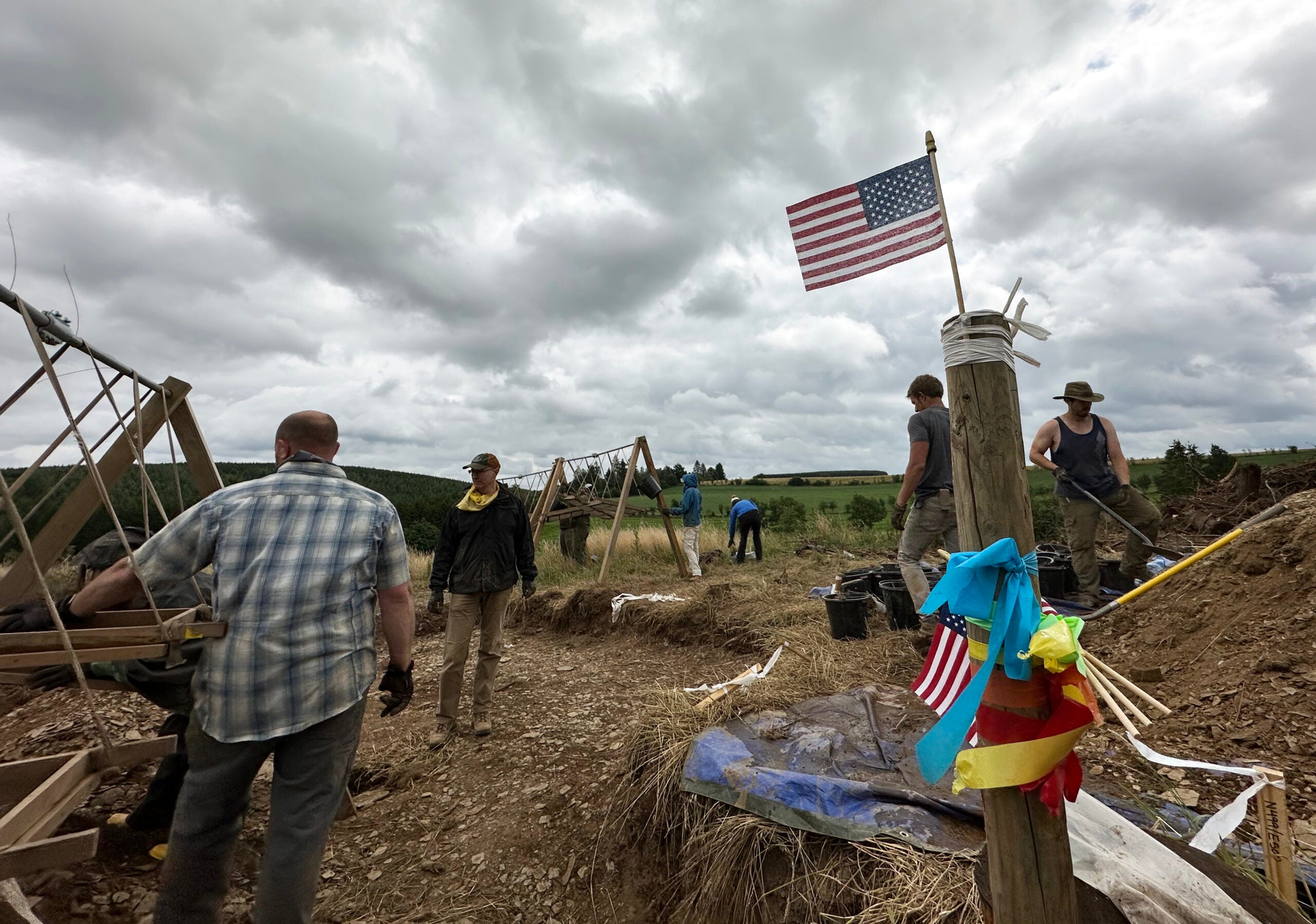Monday’s Memorial Day ceremony at the state Capitol in Madison included a ritual to honor those who died in service to their country.
A group of Marine Veterans from Dane County erected a “soldiers cross” in the Capitol Rotunda. The cross is made with sand bags, a rifle with a helmet on top, boots, an American flag and set of soldier’s dog tags. The cross has its origins in the American Civil War when it was used to mark battlefield graves.
Roger Boeker, a U.S. Marine veteran who served in Vietnam, said the rough memorial reminded him of five Wisconsin Marines who died in Iraq 10 years ago during a battle near a city where fighting between the Iraqi Army and the Islamic State group continued this week.
Stay informed on the latest news
Sign up for WPR’s email newsletter.
“That was around Ramadi and Fallujah and those areas,” Boeker said. “The areas, how should I say, abandoned. I felt very much the same way. I’m sure Marines feel today the way I did when Saigon fell. (I’m) very distressed.”
Monday’s ceremony closed with the families of fallen soldiers placing roses at the base of the cross.
Speaker Says Holiday Also Helps Survivors
Memorial Day is traditionally a day to honor men and women who died in the nation’s wars, but at the state Capitol, one speaker at the ceremony said it’s also a day to offer healing to the veterans who survived.
The ceremony in the Capitol Rotunda included a VFW band playing patriotic songs, a reading of the Gettysburg Address and an offering of flowers for veterans who died this year.
But, it also included words from Dane County Judge David Flanagan. Flanagan served as a Navy Seabee in the Vietnam War. Now, he runs the Madison Veteran’s Treatment Court, which helps vets who have gotten in trouble with the law because of drug addiction or the effects of post-traumatic stress disorder.
“Each person that person that comes into this Vets Court raised a hand, took an oath, put on a uniform, and was proud of who they are and what they did. We can offer the opportunity to stand up, come back and be that strong person again,” he said.
The court in Madison is one of 300 now operating across the country.
Wisconsin Public Radio, © Copyright 2025, Board of Regents of the University of Wisconsin System and Wisconsin Educational Communications Board.






